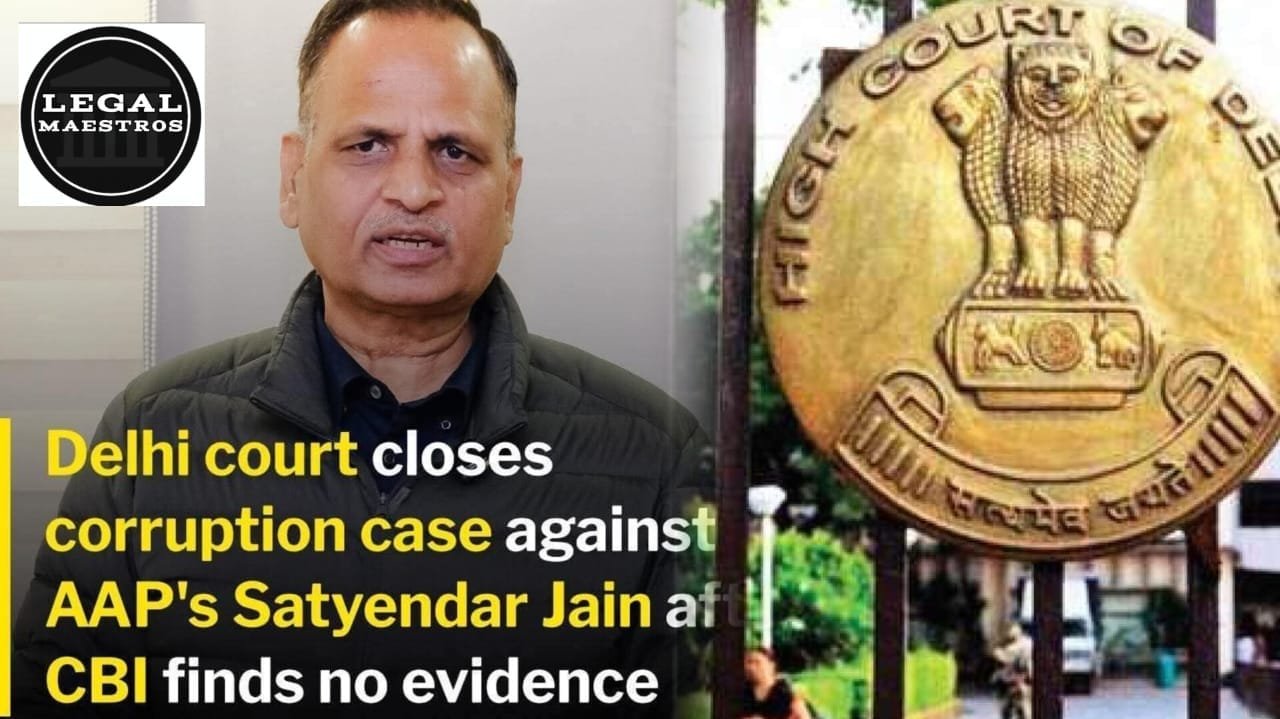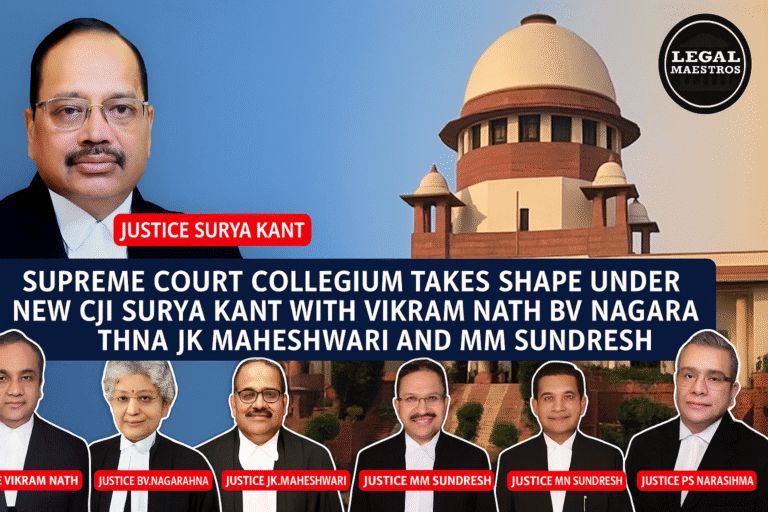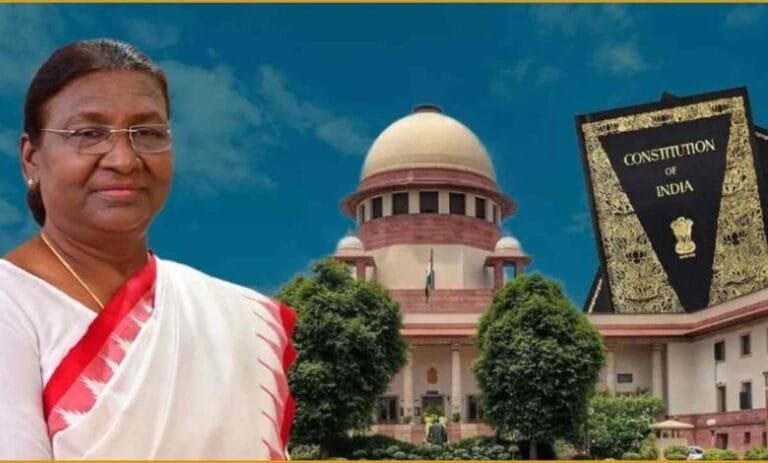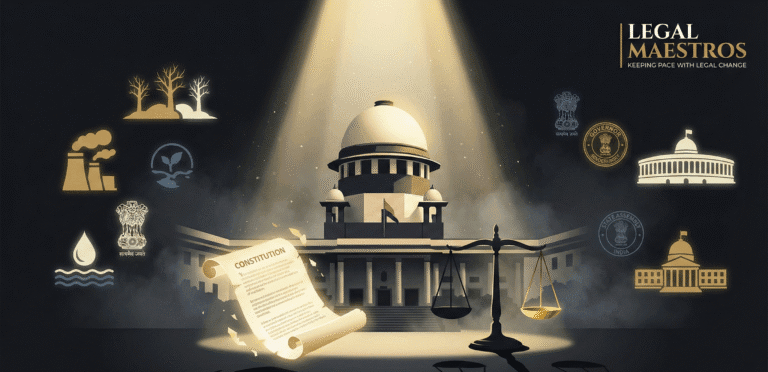
Delhi Court Dismisses Corruption Case Against AAP’s Satyendar Jain: CBI Finds No Evidence in PWD Consultant Hiring Allegations
CBI vs. Satyendra Jain & others clarifies the most vital distinction between administrative aberrations and criminal actions under the Prevention of Corruption (PC) Act. The case was on a closure report of the Central Bureau of Investigation (CBI) in regard to an FIR initiated against Satyendra Jain, who was the then Minister of PWD in the Government of the National Capital Territory of Delhi (GNCTD), and other PWD officials.
These allegations were based on a complaint by the Directorate of Vigilance, GNCTD, accusing irregular employment of professionals, contravention of rules, and delays, as well as payments to professionals made out of unrelated project funds.
In particular, a so-called Creative Team of 17 consultants was accepted, avoiding regular recruitment procedures and financial rules, and was paid on charges against projects such as Barapulla Phase III without any authorizations.
For any queries or to publish an article or post or advertisement on our platform, do call at +91 6377460764 or email us at contact@legalmaestros.com.
The complainant even raised the issue of favoritism over a particular outsourcing agency, M/s Soni Detective & Allied Services Private Limited, and queried the qualifications of the recruited professionals.
The CBI’s Investigation and Findings
After a 4-year inquiry, CBI decided that there was no criminality, personal gain, or criminal intent. The inquiry conducted by the CBI established that the requirement to recruit professionals was valid since it was composed of a lack of in-house expertise and a high vacancy rate where 25 out of 45 vacancies for architects were left vacant.
Its hiring procedure was also said to be transparent and merit-based, with an initial process of open advertisement where more than 1,700 applications were verified. The post was outsourced, an open tender was floated, and the lowest bidder emerged as M/s Soni Detective & Allied Services Private Limited.
The CBI identified no root problem in the selection process, as the experts were in the interview board and the communicated candidates were highly qualified.
The investigation also touched on the financial accusations. The CBI, in its findings, held that the projected expenditure of Rs. 3.83 crore was not over and above the Rs. 5 crore limit that had been given to the principal secretary, PWD, and thus did not need to necessarily consult the Finance Department.
The redirection of the funding in Phase III of the Barapulla project to the Mohalla Clinics project was seen as an administrative decision to take the chances of audit off, considering the Mohalla Clinics project was a priority project completely financed by the GNCTD. The CBI did not reach any conclusion of a loss to the exchequer, misappropriation, or undue preference to the outsourcing agency.
It was discovered that M/s Soni Detective & Allied Services Private Limited did not receive a commission of Rs. 1.76 crore as claimed by the complainant but was being paid a commission of only around Rs. 7 lakhs in regard to its services as per the agreement, leading to a case dismissal.
According to the Memorandum of Association (MoA) of the agency, its activities incorporated the provision of human resources, attendance, and payroll, which focused on the fact that the agency is worth hiring.
The Court’s Rationale and Legal Principles
The judgment by the court on the aspect of accepting the closure report of the CBI rested on the fact that not all the administrative lapses and procedural irregularities are criminal offenses under the PC Act. Based on the precedents like C. Chenga Reddy & Ors. vs. State of A. P. and Union of India & Anr. vs. Major J. S. Khanna & Anr.
The court pointed out that lapses or neglect of rules by the department, though it can lead to departmental as well as departmental tolerance, does not invariably connote criminal or fraudulent intent.
The highlight of the court was that specific evidence is required to establish the elements of wrongful gain, pecuniary advantage, or even the criminal conspiracy contained in the unamended Section 13(1)(d) of the PC Act. There is no evidence for which the strongest suspicion can recompense.
The court held that the investigation conducted by the CBI with its in-depth inquiry over various years did not reveal any prosecutable evidence against the accused. The charges brought forth by the complainant were considered to be based on assumptions and surmises but not on the exact evidence that would warrant further investigation to support the charges as stated.
The court established that no incriminating evidence was revealed to warrant the charges under the PC Act, and further proceedings would not be of any use. This case is thus a good reminder that although a high level of probity is expected of the public officials, a clear distinction should be drawn between the mistakes made in the administrative aspect as compared to the mistakes made based on criminal interest. It supports the legal principle that suspicion by itself will not carry a criminal charge, and the investigating agency bears the heavy burden of establishing a prima facie case.







